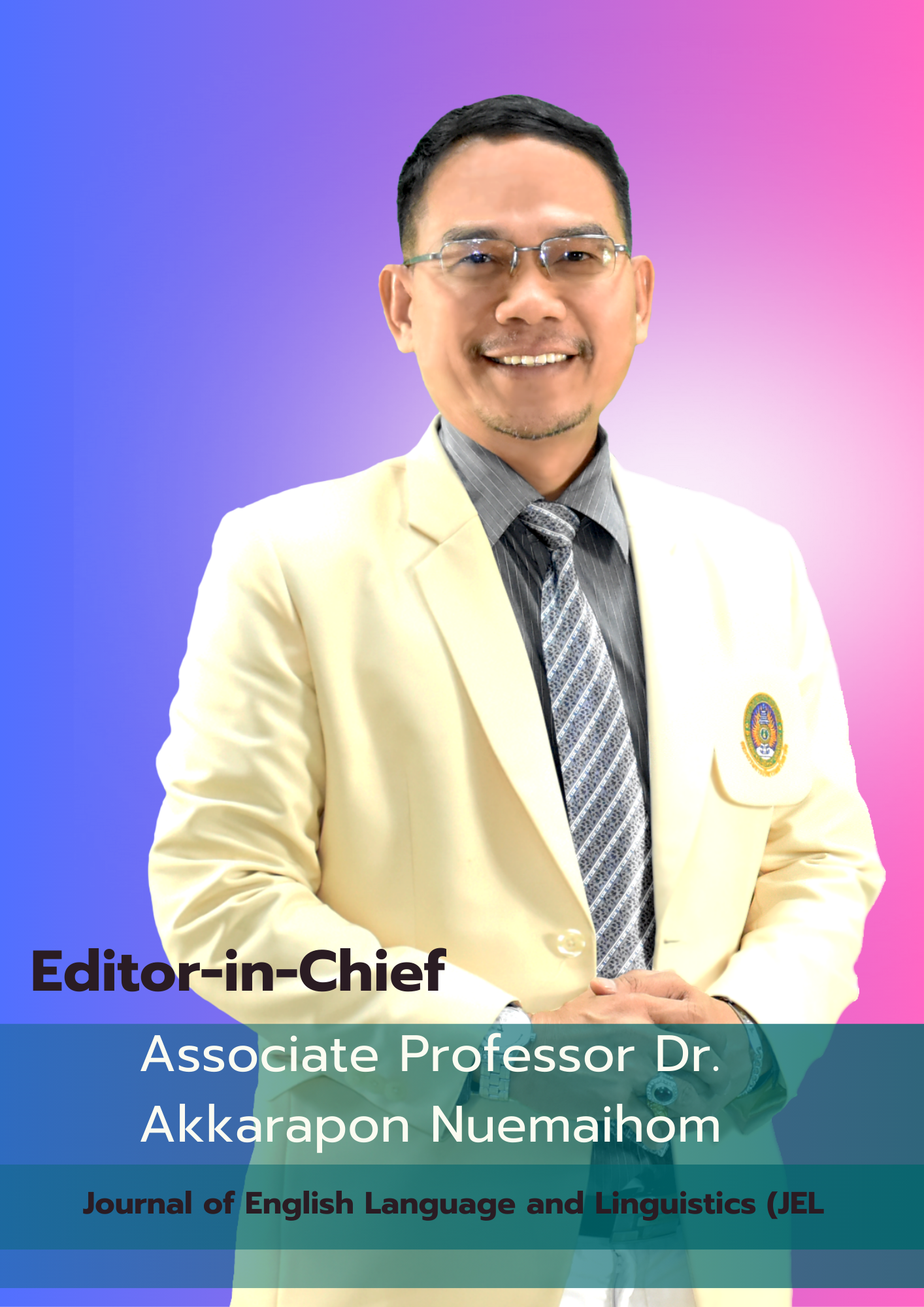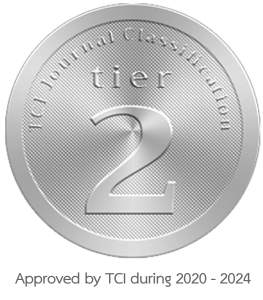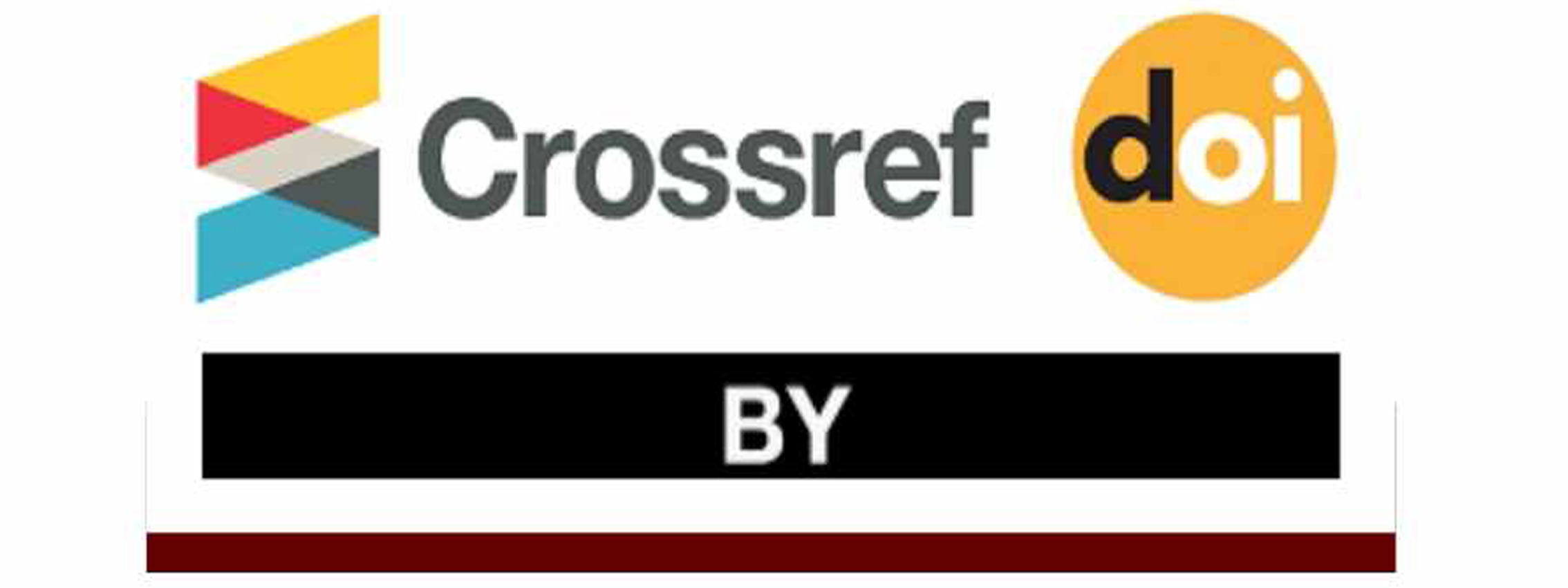Enhancing English writing competence and self-correction awareness through the RADAR process in argumentative writing
DOI:
https://doi.org/10.62819/jel.2025.1171Keywords:
academic writing development, argumentative writing, metacognitive strategies, RADAR process, self-correctionAbstract
Among Thai EFL learners, developing academic writing proficiency presents ongoing challenges—particularly in constructing grammatically accurate sentences, maintaining paragraph coherence, and engaging in self-directed revision. This study investigates the efficacy of the RADAR process—an instructional framework grounded in metacognitive strategies and recursive revision—in enhancing English writing competence and self-correction awareness. A one-group pretest–posttest design was conducted over a 16-week term with 30 junior students majoring in English under the Bachelor of Arts program, enrolled in a course on argumentative reading and writing. The instructional intervention followed the five-stage RADAR sequence: Recognition, Analysis, Diagnosis, Adjustment, and Reconstruction. Data were collected from pretest and posttest writing tasks, which were assessed using an analytic writing rubric, along with self-report questionnaires and semi-structured interviews. Quantitative findings revealed statistically significant gains in writing scores (t(29) = 3.56, p = .0017), particularly in sentence variety, grammatical precision, and cohesion. Qualitative data supported these results, showing increased metacognitive awareness, improved proofreading habits, and greater learner autonomy in revising writing errors. Despite these positive outcomes, the study’s scope was limited by the absence of a control group and its focus on paragraph-level writing tasks, which may not fully represent broader academic writing abilities. Overall, the study offers empirical support for the RADAR process as an effective instructional model that integrates linguistic instruction with cognitive engagement. It contributes to EFL pedagogy by fostering both writing accuracy and learner autonomy and provides implications for curriculum design, teacher training, and self-regulated learning.
References
Alhammad, A. I. (2025). Implementing a genre-based approach to enhance essay writing skills in Saudi EFL learners. Journal of Language Teaching and Research, 16(1), 295–301. https://doi.org/10.17507/jltr.1601.31
Al-Mashani, T. (2025). Lecturers’ perspectives on fostering future skills among Omani EFL learners. World Journal of English Language, 15(6), 47-57. https://doi.org/10.5430/wjel.v15n6p47
Andania, R. A. (2017). The grammatical accuracy, cohesion and coherence of Thai students’ English writing at Darawithaya School, Narathiwat – Thailand. International Journal of Emerging Technologies in Learning, 6(1), 1–25. https://doi.org/10.15642/IJET.2017.6.1
Anggraeni, C. W., Mujiyanto, J., Rustipa, K., & Widhiyanto. (2025). Effects of utilizing self-regulated learning-based instruction on EFL students’ academic writing skills: A mixed-method investigation. Asian-Pacific Journal of Second and Foreign Language Education, 10(15), 1-26. https://doi.org/10.1186/s40862-024-00317-6
Chen, C. (2024). Research of the effect of proficiency in the use of metacognitive strategies on college students’ English writing achievement. Journal of Education and Educational Research, 11(3), 59–64. https://doi.org/10.54097/n2vn9q27
Gunning, T., Mayall, H. J., & Richardson, J. (2024). Metacognitive scaffolding and independent writing in English-medium instruction: An EFL perspective. System, 125, Article102950. https://doi.org/10.1016/j.system.2024.102950
Ha, Y. N., & Ho, N. P. (2025). EFL postgraduate students’ perceptions on the use of Grammarly and peer feedback to improve their academic writing skills. International Journal of TESOL & Education, 5(1), 25-49. https://doi.org/10.54855/ijte.25512
Heard, J., Scoular, C., Duckworth, D., Ramalingam, D., & Teo, I. (2025). Critical thinking: Skill development framework. (2nd ed.) Australian Council for Educational Research. https://doi.org/10.37517/978-1-74286-752-6
Ka-kan-dee, M. (2014). Difficulties in writing English argumentative essays by EFL learners in Thailand. Proceedings of the 2014 WEI International Academic Conference, 193–207. West East Institute. Retrieved from https://www.westeastinstitute.com/wp-content/uploads/2014/06/Maleerat-Ka-kan-dee.pdf
Ka-kan-dee, M., & Kaur, S. (2015). Teaching strategies used by Thai EFL lecturers to teach argumentative writing. Procedia - Social and Behavioral Sciences, 208, 143–156. https://doi.org/10.1016/j.sbspro.2015.11.191
Kawinkoonlasate, P. (2023). The use of flipped classroom technology approach with E-writing program to develop writing and promote active learning environment of Thai EFL learners. English Language Teaching, 16(12), 39-57. https://doi.org/10.5539/elt.v16n12p39
Khairuddin, Z., Daud, K. M., Anuar, N., Satimin, O., Yusof, F. H. M., & Sabri, S. (2024). Relationship between perceived students’ critical thinking skills and academic writing skills. International Journal of Research and Innovation in Social Science, 8(3), 140–155. https://doi.org/10.47772/IJRISS.2024.803343S
Matwangsaeng, R., Matwangsaeng, P., Sukying, A., & Min, C. (2025). Analyzing grammatical errors to improve English writing among Thai high school students’ interlanguage and vocabulary use. Theory and Practice in Language Studies, 15(1), 82–92. https://doi.org/10.17507/tpls.1501.10
Nguyen, T. L. (2025). An investigation on the application of wordwall to promote learner autonomy in EFL classes at a university. AsiaCALL Online Journal, 16(1), 159–177. https://doi.org/10.54855/acoj.251618
Öztürk, M., Yüce, E., & Mıhçı Türker, P. (2025). Online peer feedback versus online teacher feedback? Effect of online feedback on students’ self-regulated learning. Technology, Knowledge and Learning, 30(4), 769–787. https://doi.org/10.1007/s10758-024-09812-8
Prapobratanakul, C. (2024). Thai EFL undergraduate engineering students’ perspectives on academic writing: Challenges and strategies. PASAA, 68(1), 1–31. https://doi.org/10.58837/chula.pasaa.68.1.1
Prompan, J., & Piamsai, C. (2024). The effects of peer feedback and self-regulated learning on Thai EFL students’ writing ability and self-regulation. LEARN Journal: Language Education and Acquisition Research Network, 17(1), 100–132. https://so04.tci-thaijo.org/index.php/LEARN/article/view/270378
Rimun, J. C., & Yumarnamto, M. (2024). Metacognition in ELT writing: Teacher’s facilitation and students’ strategies. Englisia: Journal of Language, Education and Humanities, 11(2), 91–110. https://doi.org/10.22373/ej.v11i2.20563
Riwayatiningsih, R., Yuliasri, I., Rukmini, D., & Pratama, H. (2024). The differential impact of specific metacognitive strategies on EFL academic writing performance. Forum for Linguistic Studies, 7(1), 219-231. https://doi.org/10.30564/fls.v7i1.7986
Rorintulus, O. A., Pelenkahu, N., Ali, M. I., Tatipang, D. P., & Wuntu, C. N. (2024). Metacognitive strategies and critical thinking in elevating EFL argumentative writing proficiency: Practical insights. Studies in English Language and Education, 11(2), 873–892. https://doi.org/10.24815/siele.v11i2.35832
Sabaliauskas, S., Gražulis, D., Žilinskienė, N., & Kaukėnas, T. (2025). Metacognitive strategies improve self-regulation skills in expert sports coaches. Dental Science Reports, 15(1). 1-15. https://doi.org/10.1038/s41598-025-86606-7
Said, S. B. M., & Almassry, F. A. M. (2025). The Impact of Arabic on English writing among Libyan EFL students. International Journal of Academic Research in Progressive Education and Development, 14(1), 325-333. https://doi.org/10.6007/ijarped/v14-i1/24257
Suraprajit, P. (2024). Research article abstracts in management sciences written by Thai EFL scholars: An analysis of rhetorical moves, verb tenses and voices. Forum for Linguistic Studies, 6(5), 483–493. https://doi.org/10.30564/fls.v6i5.6955
Sutinwong, N. (2023). A genre-based approach to improve argumentative writing performance for Thai learners. The Journal of Faculty of Applied Arts, King Mongkut University of Technology North Bangkok, 16(2), 1–18. https://doi.org/10.14416/j.faa.2023.15.001
Tahir, D. A., & Qasim, S. A.-M. (2025). Improving Iraqi English learners’ ability to develop and Support Claims in argumentative writing. Mağallaẗ Al-ʿulūm al-Insāniyyaẗ Wa-al-Iğtimāʿiyyaẗ, 9(1), 113–124. https://doi.org/10.26389/ajsrp.n161224
Tang, X. (2025). L2 writing with AI: Perceptions and engagement of EFL learners in China. English Language Teaching, 18(2), 68-75. https://doi.org/10.5539/elt.v18n2p68
Tatipang, D. P., Pelenkahu, N., Ali, M. I., Wuntu, C. N., & Rorintulus, O. A. (2024). Metacognitive strategies and critical thinking in elevating EFL argumentative writing proficiency: Practical insights. Studies in English Language and Education, 11(2), 873–892. https://doi.org/10.24815/siele.v11i2.35832
Thaksanan, P., & Chaturongakul, P. (2023). Enhancing EFL students’ performance and genre awareness in academic writing through genre-based instruction. Arab World English Journal, 14(2), 295–311. https://doi.org/10.24093/awej/vol14no2.21
Watcharapunyawong, S., & Usaha, S. (2013). Thai EFL students’ writing errors in different text types: The interference of the first language. English Language Teaching, 6(1), 67–78. https://doi.org/10.5539/elt.v6n1p67


















